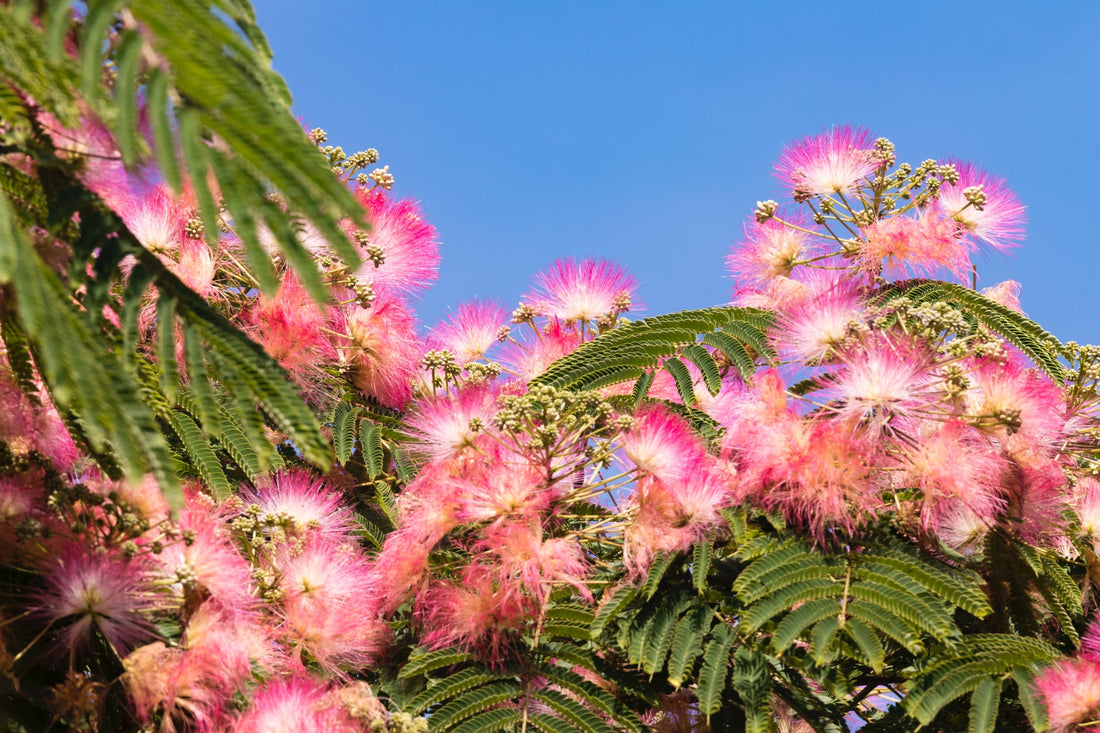
Herb of the Month: Mimosa Flower
Shannon TrubatchShare
While walking or driving through the streets of Portland this time of year, you may spy what appears to be small, bright pink poofs growing atop trees, like truffula tufts straight out of a Dr. Seuss book. Mimosa trees, latin name Albizia julibrissin, spark joy just from their sheer appearance during the hot, dry days of August here in the Pacific Northwest. Mimosa, or He Huan Hua in Pinyinis, translates loosely to the "happiness herb," and is known in Chinese medicine for being a lifter of the mood and an ally of the nervous system.
In the wild, the Mimosa tree tends to grow in dry plains, sandy valleys, and uplands, and are native to China, Persia, Korea, and Japan. As is the case with Honeysuckle, Kudzu, and other Asian natives, the Mimosa tree has found a home throughout the U.S., and is now considered an invasive plant in our region.
Categorized in the Chinese Materia Medica as a calming spirit herb, the bark is thought to ‘anchor’ the spirit, while the flowers lighten it. In accordance with the description from Chinese Materia Medica, this herb is sweet-bitter in flavor with a neutral energy, that enters the heart and liver organ meridians. The flowers are helpful in cases of insomnia, depression, melancholy and anxiety. It's use is especially recommended for anyone who is suffering from grief as a result of a severe loss, and those undergoing intense stress or trauma. When the world feels heavy and dark, reach for Albizia to bring you some lightness.
Mimosa works well with other plants with an affinity for the nervous system, such as Passionflower, Skullcap, and Lemonbalm. Because of its blood-moving properties, Mimosa is contraindicated for use during pregnancy.
If you find yourself wanting to work with the calming, spirit-lifting energies of Albizia, stop by The Herb Shoppe, or find us online, for our Albizia julibrissin tincture.
You can also work with Mimosa flower medicine in these other THS products:
